As Trump escalates pressure, experts fear Iran will strike back
WASHINGTON — The Trump administration’s strategy of ratcheting up diplomatic, financial and military pressure on Iran is increasing the likelihood that Tehran will use its proxy forces to strike U.S. targets abroad, according to several former intelligence officials.
Since withdrawing a year ago from a 2015 nuclear accord with Iran, the Trump administration has tried to block Iran’s ability to export oil, designated the country’s Islamic Revolutionary Guard Corps as a terrorist organization and, on May 5, announced it was hastening the deployment of a Navy carrier strike group to the Middle East to deter any possible attack by Iran on the United States or its allies. Most recently, on May 8, the United States imposed sanctions on Iran’s aluminum, copper, iron and steel sectors.

Now, Iran may be preparing to strike back. The United Arab Emirates announced that four ships had been sabotaged May 12 off its coast near the Strait of Hormuz, the body of water that connects the Persian Gulf to the Indian Ocean and through which passes roughly one-fifth of the oil traded globally. Saudi Arabia said two of the ships were Saudi tankers. Neither country detailed the nature of the sabotage or assigned blame, but Iran threatened in April to block the Strait after the United States warned countries still buying Iranian oil that they must stop or face sanctions.
“It's going to be a bad problem for Iran if something happens, I can tell you that. they're not going to be happy,” Trump said Monday, in response to reports of the sabotage.
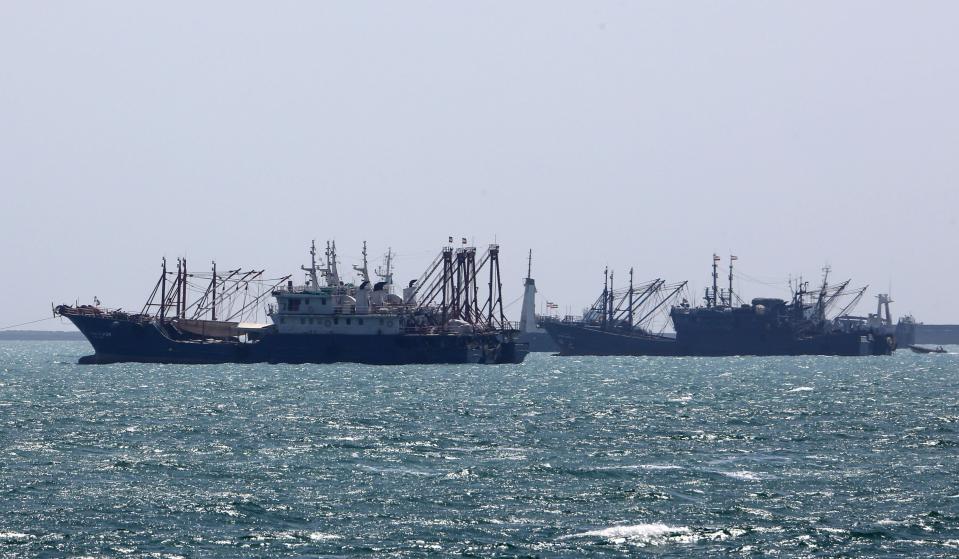
“Iran is under unprecedented financial stress because of the resumption of sanctions,” said Matthew Levitt, who served as the Treasury Department’s deputy assistant secretary for intelligence and analysis from 2005 to 2007. “The possibility that Iran will try to respond to some of these actions is fairly high.”
That response will likely be undertaken via some of the numerous proxy militias that serve as surrogate forces for Iran throughout the Middle East. “Iran really can’t go head-to-head with the U.S. military,” said Levitt, now an expert on Iran’s proxies at the Washington Institute for Near East Policy. “That’s not how it does business.”
During the past 15 years, Iranian-sponsored Shiite militias have become an expeditionary force that Tehran uses to advance its foreign policy in Lebanon, Iraq, Syria and Yemen. During the Iraq War, Iran used groups such as Kata’ib Hezbollah and Asa’ib Ahl al-Haq to attack U.S. forces with advanced guerrilla weaponry.
“At least 600 U.S. personnel deaths in Iraq were the result of Iran-backed militants,” Marine Gen. Kenneth McKenzie, the new head of U.S. Central Command, said during a May 8 speech in Washington. It was a point underscored by Rep. Elissa Slotkin, D-Mich., a former CIA analyst of Iranian proxy forces who served three tours in Iraq. “They provided the training, the materiel, the money, the leadership and the weapons,” she said in an interview with Yahoo News.
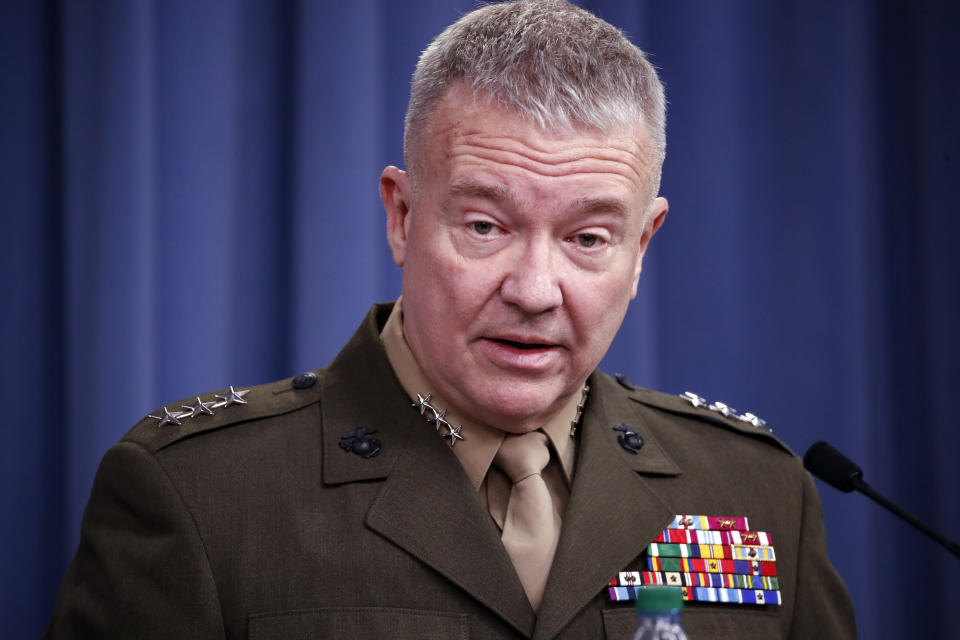
The possibility of Iran retaliating against the United States should come as no surprise, according to Norman Roule, a former CIA official and the national intelligence manager for Iran from 2008 until his retirement in 2017. “Who in their right mind doesn’t expect the Iranians to strike back?” he said. “What plan can you have which would not involve Iran attempting to respond by testing our fortitude?”
By using proxies instead of its own military forces, Iran would hope to make its attacks “attributable” by U.S. intelligence — thus delivering the message Tehran wants to send Washington — but “deniable” in the court of public opinion, according to Roule. “That’s their playbook,” said Slotkin. “They try to create deniable attacks that can’t be linked back to Tehran in order to avoid the consequences.”
“Iran knows that by doing so it makes it difficult for the United States to respond directly,” because the United States is not going to “declare war” on Iran’s surrogate forces in Iraq or Syria, Roule said.
Iran is more likely to use its Shiite militias to attack U.S. forces in Iraq, rather than in Syria, where there are fewer U.S. troops and Iran finds it more difficult to control its proxies, according to retired Army Maj. Gen. Mark Quantock, who from 2016 to 2017 was director of intelligence for U.S. Central Command, which oversees U.S. military operations in the Middle East. “In Iraq you’ve got all kinds of people that would be more than happy to roll after us,” he said.
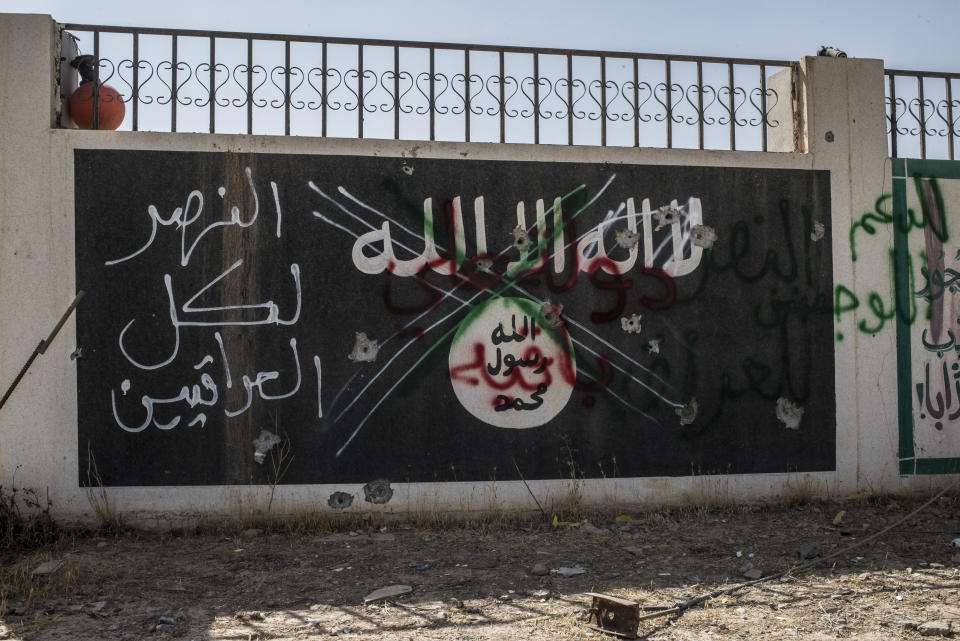
The small U.S. military footprint in both countries reduces U.S. options, according to Roule. “We don’t have a military presence and a political stature in those locations to allow us to easily respond with overwhelming political or military force,” he said. “We only have a few thousand personnel in Iraq. It’s a big country.”
Rather than strike next, however, the Iranians are likely to wait for the opportunity to react to a U.S. military action, perhaps one that Tehran might have baited U.S. forces into committing, thus allowing the Iranians to “play the victim,” according to Quantock. “They could create a situation where the indicators are that they’re moving a missile [by ship] and in fact they’re not, it’s just a big ploy to draw us,” he said. “The boat’s stopped, something goes awry, we sink the boat. … We basically are in the position where we’ve initiated something.”
Such a scenario is more likely, Quantock said, than what he termed “the most dangerous” action Iran could take: blocking the Strait of Hormuz. (Quantock was speaking before news broke of the alleged sabotage of four vessels near the strait.)
“The straits are pretty easy to shut down,” Quantock said, adding that Iran could accomplish this by either mining the strait or sinking a tanker. But Iran is unlikely to choose this option, he said, “because if you mine the straits, you are the aggressor in the world’s opinion, because everybody relies on that.”
In Roule’s view, the most dangerous Iranian course of action would be to attack in a different part of the world altogether. “I would ensure that I am looking beyond the Middle East,” he said.
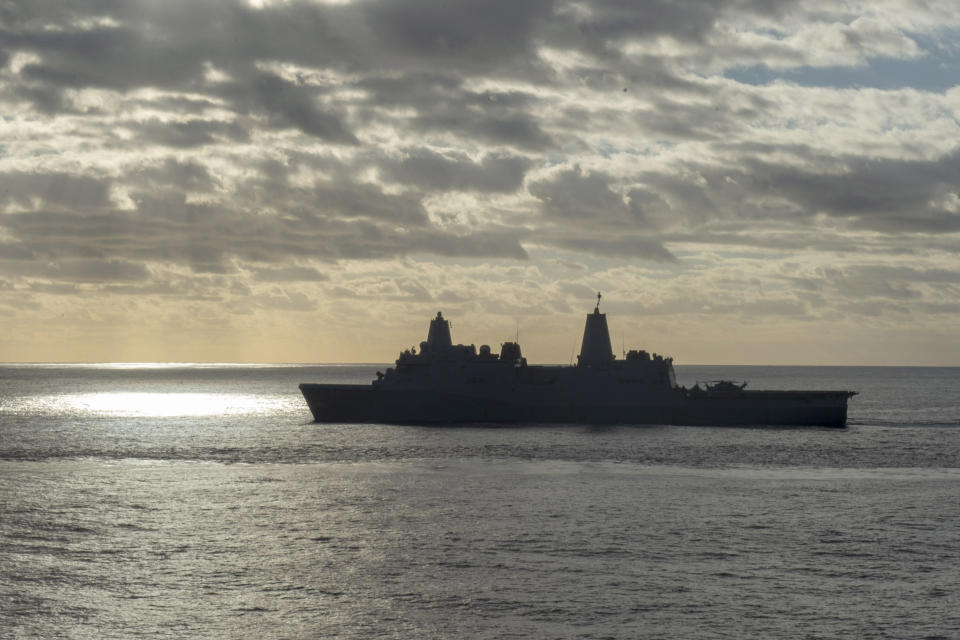
Despite the harsh rhetoric emanating from Washington and Tehran, however, it is in neither government’s interest for the confrontation to escalate, according to Roule. “No one — not the United States nor any regional country — is looking for an actual military conflict,” he said.
But in the fraught atmosphere of the Middle East, a misstep from either side could result in war nonetheless, and the risks of miscalculation — by either side — are high.
“The biggest concern is that people think that they can do violent things in a limited fashion and either the rocket hits the wrong thing or something else happens and things spiral out of control,” Levitt said.
In that context, the Trump administration’s surge of military forces, which the Defense Department announced May 10 would be augmented by the USS Arlington and an Army Patriot air defense battery, represents “messaging” from Washington, Levitt said. “The message is, ‘We know what you were trying to do, there is no reasonable deniability to this and we’re serious when we say we will take retaliatory action,’” he said.
The military moves fit a long-established pattern, according to Roule. “Do you know what the most expensive thing is in the Middle East?” he said. “It’s nothing. We pay more for nothing. If you want nothing to happen, if you want no bomb to blow up, if you want somebody’s idea just not to kind of work, if you want the president not to have a problem on his plate today, if you want the bad guy not to respond when you do something.”
The latest deployments make sense in that context, he said. “If they want to make sure that nothing happens, then you’ve got to take some steps, and that does explain what’s happening here.”
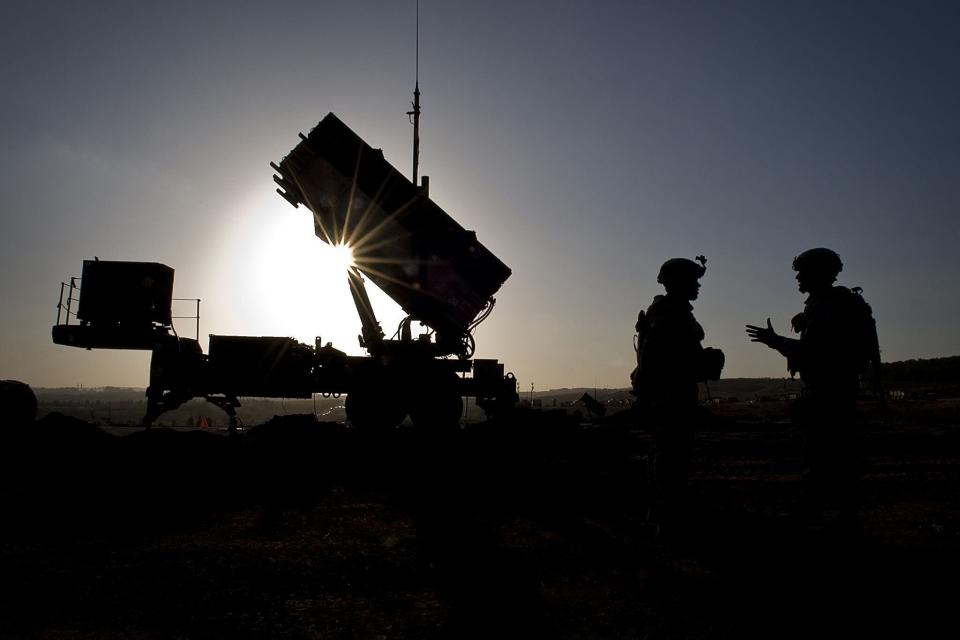
_____
Read more from Yahoo News:



